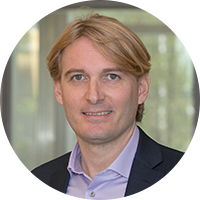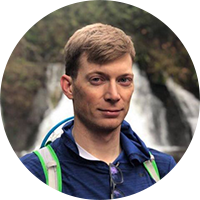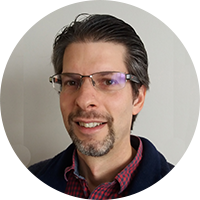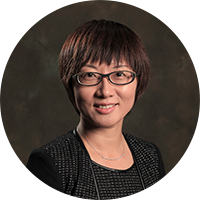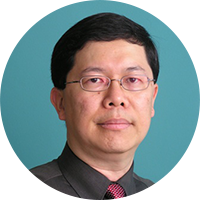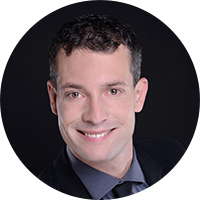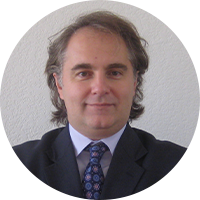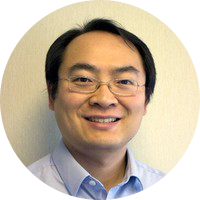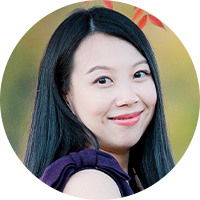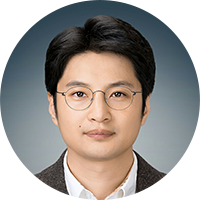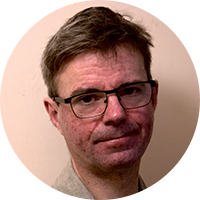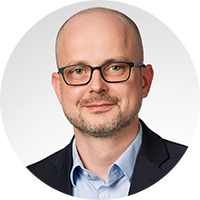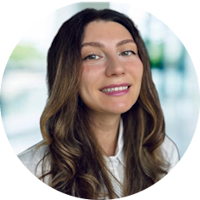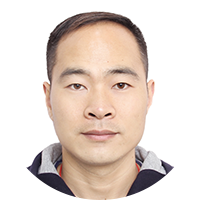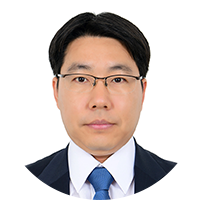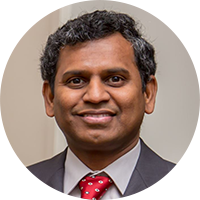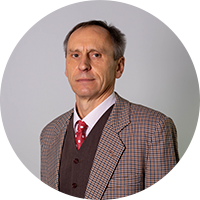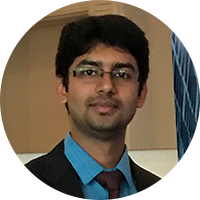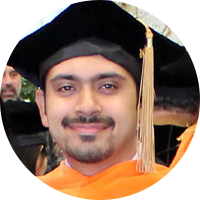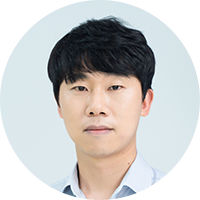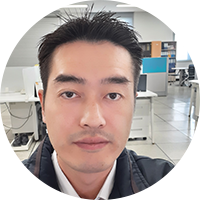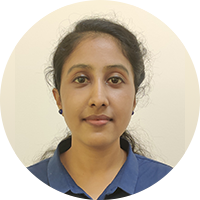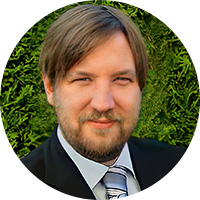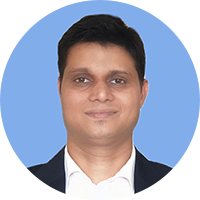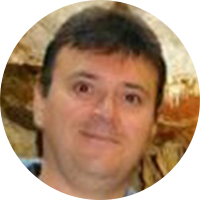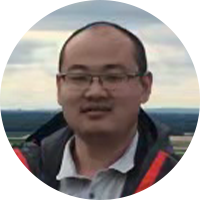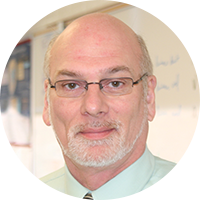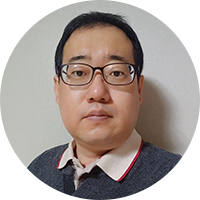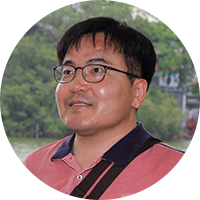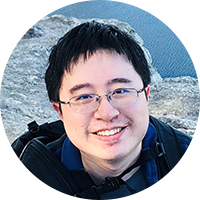SIMULIA Champions 2022
Meet our SIMULIA 2022 Champions
Andrea Alù
Einstein Professor, Director, Cuny Advanced Science Research Center
Andrea Alù is the Founding Director and Einstein Professor at the Photonics Initiative, CUNY Advanced Science Research Center. He received his Laurea (2001) and PhD (2007) from the University of Roma Tre, Italy, and, after a postdoc at the University of Pennsylvania, he joined the faculty of the University of Texas at Austin in 2009, where he was the Temple Foundation Endowed Professor until Jan. 2018.
Dr. Alù is a Fellow of the National Academy of Inventors (NAI), American Association for the Advancement of Science (AAAS), Institute of Electrical and Electronic Engineers (IEEE), Optica Society of America (OSA), Society of Photo-Optical Instrumentation Engineers (SPIE) and American Physical Society (APS), and has received several scientific awards, including the Blavatnik National Award in Physical Sciences and Engineering, the AAAFM Heeger Award, the Dan Maydan Prize in Nanoscience, the IEEE Kiyo Tomiyasu Award, the Vannevar Bush Faculty Fellowship, the ICO Prize in Optics, the NSF Alan T. Waterman award, the OSA Adolph Lomb Medal, and the URSI Issac Koga Gold Medal.
Austin Cox
Simulation Engineer, Meta
Austin started using SIMULIA products at university, where he researched micromechanics of shape memory alloys. Once he graduated, Austin worked at SIMULIA for several years, focused on structures, initially as customer support, then onsite at an aerospace and defense customer for a few years. He moved into a technical sales role and eventually became the High-Tech Simulation Lead. During his time there, Austin worked across SIMULIA and customer R&D and methods teams, sales, and technical support to ensure customer satisfaction and that the products had customer-needed capabilities for then and the future.
There was never a time when he did not have the opportunity to work on something fascinating such as workflow automation, additive manufacturing, the 3DEXPERIENCE platform planning/teaching/system standup, and the ODB reduction tool, to name some. During his time there, Austin enjoyed working with over 15 of the largest High-Tech companies and team members of all SIMULIA physics disciplines, including fluids/thermal, electromagnetics, multi-body dynamics, and acoustics to ensure the devices of the future were well rooted in sound physics. Today he works at Meta, where Austin develops methods for the simulation teams and still conducts many similar tasks that he did while I was at SIMULIA.
Ben Marrant
Lead NVH Engineer, ZF
Ben Marrant is a lead NVH engineer at ZF Wind Power. As a youngster, he was fascinated by everything involving aviation but most of all with helicopters. Following his interests, he started taking flying lessons with ultralights but to get a deeper understanding he pursued aerospace engineering studies at TU Delft. His master’s thesis involved simulations with a non-linear multibody code which was developed at his time at university. The subject was the investigation of aero-elastic stability of a helicopter rotor applied to a small two-seated helicopter called the Masquito M80. The combination of aerodynamics and structural dynamics was what intrigued him the most. He graduated with a Master’s in Aerospace Engineering. After his graduation, he was asked to remain working at university as a Research Associate. Two main projects in which he was involved required him to work on aero-elastic wind turbine simulation codes in a.o.- the European funded project, “Stability and Control of Wind Turbines” and the Dutch funded project, “Smart Dynamic Rotor Control of Wind Turbines”. After his passion for understanding the flight mechanics of helicopters, the switch to wind turbines can be simply explained as: “a wind turbine is nothing else but a helicopter standing on its side”. He then started working for Hansen Transmissions, later acquired by ZF, as a technology engineer working on multibody simulations of multi-megawatt gearboxes for wind turbines using the SIMPACK software. By being part of one of the top drivetrain suppliers in the world, he has a front row ticket in experiencing the amazing evolution the wind industry has seen in the past decades and at the same time being able to contribute to a better world. For Ben, the combination of working in the wind industry and being able to use state-of-the art codes for vibro-acoustic analysis is what makes this a very special environment. At ZF we put a lot of focus in validating our simulation models using measurements on these large powertrains to constantly improve the predictions for future product developments. What really interests him is to reduce complex vibro-acoustic problems into more understandable guidelines so that a product development department can design a solution.
Cheryl Liu
Senior Principal Engineer, Stryker
Cheryl is currently a Senior Principal Engineer at Stryker Orthopaedics, where she is leading a group of modeling and simulation experts working on digital twins throughout the medical device product lifecycle, from how they are designed, manufactured, and tested to how they help improve patient care in the real world. Before joining Stryker, Cheryl worked at Dassault Systèmes’ brand, SIMULIA as a life sciences industry lead. She worked closely with simulation experts from the life sciences industry and regulatory bodies to advance simulation technologies and regulatory acceptance. Cheryl received her MS and Ph.D. from the University of Notre Dame and BS from Beihang University. She has been a member of the ASME VVUQ40 subcommittee since 2013 and co-leading the patient-specific model working group. Cheryl has been involved in organizing events under the Orthopaedic Research Society and is currently serving as Member-at-Large for the implant research section.
Chia Tse Tong
Distinguished Member of Technical Staff, DSO National Laboratories
Tse-Tong Chia received a B. Eng. Degree (first class honors) from the National University of Singapore in 1986 and his M.S. and Ph.D. degrees from Ohio State University in 1991 and 1994, respectively. He has been with the DSO National Laboratories, Singapore, since 1986, where he held various roles. He is currently a Distinguished Member of Technical Staff. He is also an adjunct Senior Principal Research Scientist at the Temasek Laboratories at the National University of Singapore. His former interests were in computational electromagnetics and scattering. Now he focuses mainly on electromagnetic design and applications, including lenses, reflectarray/transmitarray antennas and metasurface. He has more than 10 years of experience using CST Microwave Studio. He actively supervises students from as young as 15 years old to undergraduates in school projects and internships and introduces them to CST as the electromagnetics simulation software of choice.
Colin Schwarz
Senior Engineer, GE Renewable Energy
In his current role, Colin provides simulation-based risk assessment on narrow banded machinery noise with a strong focus on gearbox tonality. Together with colleagues, Colin sets up and validates processes based on multibody simulation, which support such an assessment. Before he joined GE Renewable Energies, Colin spent almost five years on the Simpack team of Dassault Systemes and covered topics like customer and project support, trainings and product management. In parallel, he has been working on sophisticated wind turbine controllers, also called model predictive control. Apart from real time capabilities to provide a feasible control signal in time, topics like the controller impact on the drive train fatigue strength need to be addressed properly.
Dejan S. Filipovic
Professor, University of Colorado Boulder
Dejan S. Filipovic is a Professor and Hudson Moore Jr. Endowed Chair with the Department of Electrical, Computer, and Energy Engineering at University of Colorado Boulder. His research interests are in applied electromagnetics including antenna theory and design with emphasis on frequency independent and wideband antennas; development of passive millimeter-wave components, systems, and electronic warfare front-ends; low-cost fabrication of RF systems; simultaneous transmit and receive; and multi-physics, multi-scale modeling. His research has been funded by DARPA, ONR, NRL, National Science Foundation, Lockheed Martin, Northrop Grumman, BAE Systems, L3Harris, CACI and others. Prof Filipovic graduated 24 PhD students and 7 MSc thesis students and currently advises 9 students, and 4 research associates. He co-authored 5 book chapters and over 400 peer reviewed journal and conference papers. Prof. Filipovic is a Fellow of IEEE, Associate Editor for the IEEE Transactions on Antennas and Propagation, and Vice-Chair of the 2022 IEEE AP-S/URSI conference.
Fang He
Chief Specialist of Cabling System, Zhejiang Zhaolong Interconnect Technology Co., LTD
Fang He was awarded a B.Eng. degree in communication engineering from Jilin University, China, in 2002, a M.Sc. degree in communication engineering and a Ph.D. degree in electrical and electronics engineering in 2005 and 2011 respectively from the University of Manchester, UK. He had been with HellermannTyton Data Ltd, UK since 2009 where he was a Product Development Engineer. Since 2019, he has been with Zhejiang Zhaolong Interconnect Technology Co. Ltd., China, where he is the Chief Specialist of Generic Cabling and the Laboratory Director. He started using CST in 2006 for antenna simulation in his PhD program and used CST as a development tool for ethernet connectivity products in his career. He is a member of IET and a Chartered Engineer in UK. He is also a senior member of IEEE.
Huan Liao
Staff Antenna Engineer, Meta
Huan Liao is a staff antenna engineer at Meta, Reality Labs Hardware Tech Eng Group. Meta’s vision is to bring the metaverse to life. Huan is responsible for the antenna design, simulation and characterization on the hardware devices, which are an important part of the metaverse. Before Meta, Huan has worked at Google for 9 years, being the antenna/RF lead on various consumer products with premium wireless performance, like Pixelbooks, VR and wearable devices, from concept to mass production. She has broad knowledge in various fields like RF desense, wireless connectivity, RF regulatory. Huan has been using CST Studio Suite® since 2007, during her Ph.D. study at University of California, Davis, and has been using CST Studio Suite heavily for the entirety of her career. Huan was the first one using CST Studio Suite in the Consumer HW group at Google, and has been the CST product champion there, maintaining a big and fast growing user group. To many people, Antenna/RF design might seem like a black magic. To Huan, CST Studio Suite is a tool to reveal this magic, to visualize the current and field distribution, to understand the antenna design better. When the simulation results match the measurement result, the magic works like a charm. Music is Huan’s biggest passion, she enjoys singing and playing piano. She also loves snowboarding.
Jinhak Konk
Team Leader, LG Energy Solution
JH Kong received a Ph.D in Material Science and Engineering from Seoul National University in 2007 in the field of solid mechanics. After engineering at Samsung Corning Precision Glass, he decided to change his career to the Li battery field for better opportunities and joined LG Energy Solutions (formerly LG Chem) in 2015. His job at an early stage of LG was to supervise colleagues in the simulation field, for the better mechanical robustness of battery module/packs. Nowadays, he is in charge of building the key CAE models and AI models for the digital twin in battery manufacture processes. As a CAE engineer, he has used Abaqus and Fotran since 1999 in various materials and fields from LCD glass substrate to battery. After 20 years in the industry, his favorite things are still building CAE models and technical discussion with his team members.
John Sawyer
Principal Engineer, Atkins an SNC-Lavalin Group Company
As a Principal Engineer at SNV-Lavalin, John uses ABAQUS for a variety of activities, including dynamic modelling of reactor cores, impact analysis of nuclear transport structures and complicated pipe whip problems. He specializes in solving the difficult and ABAQUS is an invaluable tool. His passion is solving problems in robust ways that provide insight into the physics of a situation as well as answering the questions that clients need answering. With 25 years’ experience with ABAQUS that started during the attainment of his PhD, at Monash University in Australia, modelling the inelastic behavior of paper structures he has forged a career as an engineering consultant in various industries including; packaging, aerospace, offshore structures and currently in the Nuclear sector becoming a Chartered Engineer with the Institute of Mechanical Engineers along the way. He is also an active member of the NAFEMS Computational Structural Mechanics Working Group.
Julian Winkler
Senior Principal Engineer, Raytheon Technologies Research Center
Dr. Julian Winkler is a Senior Principal Engineer in the Acoustics Team at Raytheon Technologies Research Center. He has more than 10 years of post-graduate experience in aeroacoustics for both commercial and aerospace industrial applications, with particular emphasis on turbomachinery and core noise, air-management system noise, and novel acoustic treatment design. His research background is in both experimental and numerical aeroacoustics; in his current role, he leverages high-fidelity simulations for aeroacoustic predictions to enable low-noise component and system solutions for the aviation industry. Julian received his doctoral degree (summa cum laude) in Mechanical Engineering from the University of Siegen, Germany. He is a member of the Association of German Engineers (VDI), the Acoustical Society of America (ASA), the American Institute of Aeronautics and Astronautics (AIAA), and he is also an active member of the AIAA Aeroacoustics Technical Committee.
Katerina Galitskaya
Senior Antenna Engineer, Kaelus
Katerina is a Senior Antenna Engineer at Kaelus, that provides next generation Antenna, RF Conditioning and PIM Test & Measurement solutions. She is technical blog writer and EM-simulation expert.
LiJie Wang
Simulation Leader, Araymond Innovation Center
LiJie Wang obtained his Master’s degree in Material Science and Technology in 2014. He began working as a Simulation Engineer at Great Wall Motor which is a famous Chinese OEM. He was responsible for using the static method to simulate the stiffness and strength of car interior parts such as the instrument panel. LiJie used ANSA for the model set-up and Abaqus for the calculation and hyperview for the post-process. About three and a half years later, he joined Kiekert which is a famous car latch maker. His job was to use the qusi-static method to simulate the stiffness and strength of parts of lock chain and unlock chain. He used Abaqus for the entire process. Now he works for ARaymond China as a Simulation Leader. Besides using the qusi-static method for the simulation of pushing in and pulling out force of fasteners with Abaqus, he also uses Xflow to do pressure drop simulation for Quick Connectors and nozzle spraying simulation for cleaning systems. LiJie loves simulation and it makes him happy and fulfilled.
Mingyu Kim
Research Associate, Korea Electrotechnology Research Institute
Mingyu is a Reseach Associate at the Korea Electrotechnology Research Institute. He has experience working with Dassault Systemes software for over 15 years using CATIA, Abaqus, Isight and 3DEXPERIENCE Physics Application.
Mingyu received a Master’s Degree in Mechanical Engineering from Gyeongsang National University where he studied Topology Optimization of the Traveling Decelerator Gear Carrier.
In particular, he is interested in automating analysis by linking geometrical and analytical models. He has experience in automating the analysis process using SIMULIA Isight.
He likes to teach simulation techniques. He is also the author of an exercise book with Abaqus/CAE for Korean users.
Recently, he is building a Simulation Process Data Management (SPDM) environment using the 3DEXPERIENCE platform. he manage simulation assets In the SPDM and he is working on ways to accelerate simulation tasks using SPDM.
Mohan Rathinasabapathy
Principal Design Engineer, Fluor Enterprises, Inc.
Mohan is currently a Principal Design Engineer and Subject Matter Expert (SME) at Fluor Enterprises, Inc., leading the effort to solve complex engineering problems for Process Piping and Pipelines groups of all worldwide Fluor offices with a proven track record in design, engineering, code compliance, and fitness-for-service. Prior to Fluor, he worked as Engineering Services Manager at the Dassault Systemes SIMULIA South office, serving clients from various industries, primarily Energy and Aerospace. Mohan is a member of the American Society of Mechanical Engineers (ASME) and volunteers in ASME Section VIII Division 2 and ASME B31.3 code committees. He holds a MS in Mechanical Engineering degree from Clemson University.
Nandor Mago
Finite Element Analyst, NZ Hera
Nandor Mago has been a user of Abaqus in applied research and consulting applications since 2001. With over 25 years’ experience, he worked in project management, education and vibration analysis roles in Europe and as a simulation engineer in New Zealand since 1999. He had presented his work both locally and internationally. Nandor has had the opportunity to tackle many unique structural and mechanical engineering problems, generally dealing with steel-concrete-foam composite structures analyzed under a variety of loading conditions using the implicit and explicit solvers. The simulations often involved matching experimentally measured data such as the eigenfrequencies, temperatures, deflections, or forces. He has carried out many sequentially coupled thermal-stress analyses of composite slabs and columns in fire, nonlinear buckling analyses and others. He enjoys the outdoors and trout fishing in his spare time.
Prathap Valale Prasannakumar
Antenna Engineer, Reality Labs, Meta Platforms, Inc.
Prathap Valale Prasannakumar is an antenna engineer in the Reality Labs at Meta Platforms, Inc. He has worked on Oculus Quest 2 VR devices. His current research is focused on Wi-Fi (2.4 GHz, 5 GHz, and 6 GHz), Bluetooth, and UWB antennas and improving the isolation between collocated antennas in AR/VR consumer electronics devices. His Ph.D. thesis focuses on the design of monostatic, quasi-monostatic, and bistatic simultaneous transmit and receive (STAR) or In-Band Full-Duplex (IBFD) antenna systems and wideband isolation enhancement techniques. He has over 7.5 years of experience in numerical EM simulations – Method of Moments (MoM), Finite Element (FEM), Time-domain (FIT), hybrid solvers, and other 2D and 2.5D solvers. Dr. Prathap received his MS and Ph.D. degrees in electrical engineering from the University of Colorado, Boulder. Previously he has worked as a deputy engineer in Bharat Electronics, India.
Rakesh Ramachandran
Senior Engineer, Caterpillar Inc.
Rakesh is a mechanical engineer with Doctorate degree from Illinois Institute of Technology. He’s currently working for Caterpillar Inc. as a Senior Engineer in Noise & Vibration and his specialty is Aeroacoustics and fluid-structure interaction problems. Rakesh is a heavy user of PowerFLOW.
Seong-Yong Wie
Senior Researcher, Kari
Dr. Wie is currently a Senior Researcher at KARI. He has a PhD from KAIST with more than 10 years of experience in Rotor Aerodynamics/Aeroacoustics. Dr. Wie used PowerFLOW to analyze eVTOL aerodynamic noise. He also collaborated with Dassault Systemes to predict eVTOL environmental noise using WAVE6. He conducts computational analysis and test studies of rotorcraft rotors and propellers.
Shin IL
Manager, DTR Corporation
Shin IL is currently a Manager for DTR Corporation. He has been working as a CAE using ABAQUS at the company producing automotive parts for vibration management systems over the past 15 years. In the past, he has done analysis mostly for rubber parts while he currently focuses more on anti-vibration parts for EVs.
Srien Sithara Syed Nasser
Senior Engineer, Wireless System Integration, WS Audiology
S. Srien Sithara is a Senior Engineer at WS Audiology, Singapore. She is part of the Wireless System Integration Team and is involved in simulation for product development. She is passionate about incorporating simulation methods in the product design phase to improve the development cycle. Sithara received her Master’s and Ph.D. degree in Electrical Engineering from the National University of Singapore. Her work focused on metamaterial-based antenna design. She received the first prize in Student Paper Award from the IEEE Asia–Pacific Conference on Antennas and Propagation (APCAP) 2017. Her current research interests include metamaterials, antennas, and electromagnetics. She has extensive experience with CST Studio Suite and has been an active user since 2013.
Stefan Hauptmann
Head of Wind Energy Department, Mesh Engineering GMBH
Stefan graduated from the University of Stuttgart in 2006 with a degree in Aerospace Engineering. During his diploma thesis he developed the coupling of the wind energy aerodynamics module, AeroDyn, to Simpack. Afterwards, Stefan did research for another 6 years at the University of Stuttgart in the field of aeroelasticity of wind turbines and also used the software Simpack for this purpose. In 2013, he joined MesH Engineering GmbH, where he has been leading the wind energy department, solving tasks for various customers in the field of structural dynamics, aerodynamics and aeroelasticity of wind turbines and their drive trains.
Suyog Shinde
DY. General Manager - Product Development & Process Techology, Larsen and Toubro
Suyog Shinde is leading the mechanical design and simulation team in R&D function at L&T Heavy Engineering. He joined Larsen and Toubro after completion of Master of Technology in Machine Design Engineering from Indian Institute of Technology – Roorkee. During his 16 years of experience he has worked on development of many new products and technologies related to equipment in the process and power industry. His main areas of interest include, Mechanical design of process equipment, Advanced Finite Element Analysis, Studies related to Creep and Creep Fatigue Interaction analysis, Fracture Mechanics and Simulation of fabrication processes such as welding and forming. Suyog has extensive experience with SIMULIA, in particular ABAQUS. He has been involved in varieties of advanced FEA simulations using ABAQUS for more than 10 years. Suyog has authored many papers and has been an expert speaker at reputed institutes in India.
Sylvestre Canceil
Group Scientist, Procter & Gamble Services SA/NV
Sylvestre is a Group Scientist within The Procter & Gamble Company’s Corporate Digital Innovation Organization. He was born in Tunisia, but is a French National. He graduated from the Ecole Nationale Superieure de Chimie de Paris as a chemistry engineer and completed a Diplome d’Etudes Approfondies in Organometallic Chemistry before joining Procter and Gamble in the UK in 1996 where he first was involved in Powder Laundry Detergent Formulation. This is where he started his Modeling and Simulation journey, dabbling into Design of Experiments as well as computational chemistry and mesoscale modelling. He then transferred to Belgium to work on software development before coming back to his first love of research and development in the Pack(ag)ing Modelling and Simulation group, helping business teams making decisions by providing virtual simulation data on Packages as well as the packaging transformations on packing lines. At that time, he also began focusing on Simulation Process and Data management, aiding the development of their bespoke solution that promoted the democratization of Modelling and Simulation within the business teams. This highly successful solution enabled end users to generate Virtual Modelling data themselves for their new packages to drive their projects. That lead to a transfer to the corporate organization with responsibilities that now span across the entire 3DExperience platform and how it can be used to support all aspects of the directly integrated CAD to M&S work process. Sylvestre developed a deeper understanding of both CATIA and SIMULIA apps to create the best practices and workflows that combine these capabilities. The methods are now enabling non-expert users to carry out expert operations much more efficiently than with the prior detached systems and provide modeling insights not possible before.
Tang Yang
Geotechnical Engineer, Central-South Architectural Design Institute Co., LTD
Yang Tang received PhD degree of geotechnical engineering from China University of Geosciences in 2019. Since Tang was a postgraduate student, he has been engaged in the research of geotechnical engineering numerical simulation by using Abaqus. His research interests are very board, including “the process of rainfall induced landslide”, “dynamic elastoplastic analysis of earth-rock dam”, “soil-structure interaction analysis” and so on. Besides that, he is very familiar with the development of UMAT and UEL. Tang has solved many engineering problems with numerical simulation techniques. In 2020, the COVID-19 was burst in Wuhan. He used XFlow to simulate the diffusion of polluting gases in the Leishenshan Hospital and helped designers to make better decision.
Victor Pinks II
CAE Workforce/Education Integrator for Business, Marmion Academy
Victor received his Ph.D. in chemical physics creating molecular dynamics solvers for fluid systems. It quickly became apparent to him that physical properties like viscosity and material composition were critical to final CAE product design features. With deep learning methods, he could see that bringing microscopic (molecular) solvers and CFD together promised to minimize the costly burden of difficult, dangerous, or experimentally impossible viscosity measurements. While becoming a CAE workforce/education integrator for businesses, Dr. Pinks was compelled by companies to answer important questions such as - “Where are future simulation analysts going to come from?” Cost cutting efforts of higher education combined with escalating tuitions have not been helping companies build their CAE workforce. It seems that traditional education pathways to virtual prototyping are becoming scarce, meaning businesses will have to solve their own education problems. He wondered, “Could simulation analysts come from high schools if all conditions are right?” The answer became a resounding “Yes.” Focusing on SIMULIA XFlow and Abaqus tools, Dr. Pinks created a new type of business-centric CAE workforce/education curriculum model that has been live tested since 2013 as CPARC (Computatlonal Prototyping And Research Center) – and the results have been nothing short of ‘stunning’. Company projects have included many small businesses, federal agencies, aerospace, defense, fortune 50, and specialty housing. Student teams are co-led by ‘CPARC-certified’ high school students working as adjunct business interns to company decision makers. This has become a very strong position for students transitioning to college or directly to career. Some companies are now choosing to bundle them together as employment contracts. Dr. Pinks is now collaborating on new elements of the CPARC program curriculum with industry “Lean Simulation” pioneer, Mark Zebrowski to bring virtual prototyping ‘best practices’ to companies and student simulation analysts - building a strong entry level CAE workforce for their futures.
Yongdeok Kwon
Senior Research Engineer, LG Electronics H&A
Yongdeok is in charge of structural analysis at LG Electronics H&A division, optimizing home appliances such as washing machines. He has been doing structural analysis for 17 years and uses Abaqus, Isight and Tosca to do nonlinear structural analysis, thermal stress analysis, and structural optimization. Yongdeok has to analyze not only steel parts but also parts made of rubber and plastic. It is therefore important to properly simulate material behavior such as hyperelasticity, viscoelasticity, etc. Yongdeok also uses CAE to optimize, as well as to evaluate structures. LG Electronics is currently working on replacing physical tests by using CAE, and as a CAE Engineer, this is something that Yongdeok is really interested in.
YongHa Han
Research Fellow (Lab Director), Hyundai Motor Group (R&D Division, Virtual Technology Research Lab)
YongHa Han has worked for Hyundai Motor Group for 25 years in the field of vehicle crash simulation. He is currently in charge of the Virtual Technology Innovation Research Lab and am focused on advanced simulation methodology development where they try to create the most realistic simulations possible in virtual reality to save on testing costs as well as time.
Yunyao Jiang
Senior Engineer PostFab Engineering, Globalfoundries
Yunyao Jiang is currently a Senior Engineer at GlobalFoundries. In his current role, Yunyao does Thermal-Mechanical simulation for risk assessment on Chip Packaging design, BEoL reliability and CPI. Before he joined GF, Yunyao received his Ph.D. degree in Mechanical Engineering from University of New Hampshire in 2019 in the field of solid mechanics and metamaterials. His Ph.D. research focus on Mechanics of soft mechanical metamaterials; Bio-inspired design, mechanics, and biomimetics; and 3D Printing and mechanical experiments. Yunyao has more than 10 years of experience of FEA simulation using Abaqus. He has been involved for varieties of FEA simulations for metamaterials design, bio-inspired material design and risk assessment.
Learn What SIMULIA Can Do for You
Speak with a SIMULIA expert to learn how our solutions enable seamless collaboration and sustainable innovation at organizations of every size.
Get Started
Courses and classes are available for students, academia, professionals and companies. Find the right SIMULIA training for you.
Get Help
Find information on software & hardware certification, software downloads, user documentation, support contact and services offering

